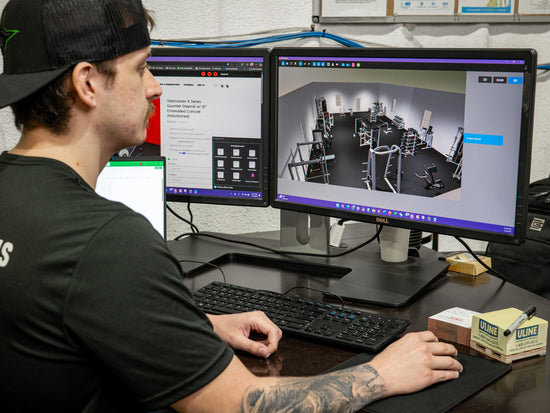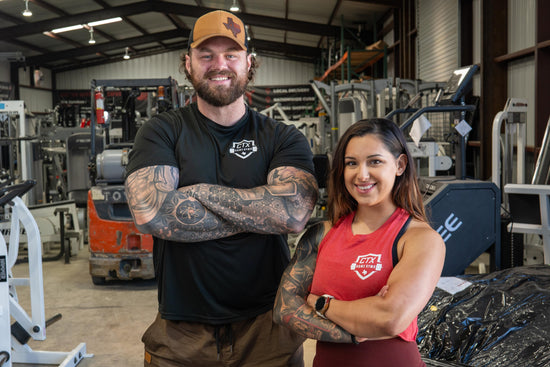
Should Personal Trainers Open Their Own Gym? The Real Costs, Risks, and Rewards
Share
Should You Open Your Own Gym? A No-Fluff Guide for Personal Trainers
It’s 7PM. You’ve just finished your ninth client of the day. As you wipe down dumbbells in someone else’s gym, the thought creeps in again:
“What if all this work was going into my own business instead of someone else’s?”
Every trainer reaches this crossroads. Do you stay safe as a contractor in a gym, or take the leap into ownership? The answer isn’t just about passion — it’s about numbers, risks, and the reality of running a business.
At CTX Home Gyms, we’ve guided dozens of trainers through this transition. Three of our gyms in 2024 were profitable on day one. Here’s the real-world breakdown of what it takes to move from trainer to owner.
The Trainer’s Dilemma: Stay or Grow?
Staying in someone else’s gym means:
- ✅ Lower risk — no rent, no payroll headaches.
- ✅ Predictable income — steady but capped.
- ✅ Fewer responsibilities — the owner handles bills, repairs, and equipment.
But here’s the trade-off:
- ❌ Limited control over your schedule, branding, and pricing.
- ❌ No long-term asset growth — you’re building their business.
- ❌ Total dependence on someone else’s rules and marketing.
Owning your own gym flips the equation: You gain freedom, scalability, and equity — but with more responsibility on your shoulders.
What It Really Costs to Open a Gym
Here’s the financial reality most trainers don’t see upfront:
| Expense | Typical Range | Notes |
|---|---|---|
| Lease or Property | $3,000–$10,000+/month | Varies by size & city |
| Renovations & Buildout | $20,000–$100,000 | Flooring, lighting, bathrooms, branding |
| Equipment | $50,000–$200,000 | New vs refurbished makes a huge difference |
| Operating Expenses | Ongoing | Utilities, insurance, payroll, software, marketing |
Pro Insight: Choosing remanufactured commercial equipment can cut your upfront costs by 30–50% — without sacrificing quality. This alone can shave months off your path to profitability.
Want to see how your numbers stack up? Use the interactive calculator below to estimate your potential revenue, profit, and break-even timeline for your future gym.
Gym ROI Calculator
Enter your estimated members and price per month to project revenue. Add expenses and startup costs to see profit and break-even.
Optional: Add Costs to See Profit & Break-Even
Risks Trainers Overlook
Opening a gym isn’t just about signing a lease and buying weights. Here are the pitfalls that sink many first-time owners:
- Overestimating demand: A loyal PT client base doesn’t always translate into enough members to cover overhead.
- Underestimating overhead: Rent, insurance, staff, and ads add up fast.
- Poor equipment choices: Cheap consumer gear = costly repairs and replacements.
- Business blind spots: Training skills ≠ business skills. Marketing, payroll, and retention are a whole different game.
Pro Tip: Start small, build lean, and scale with demand. A 1,200–1,800 sq. ft. studio can often outperform a 5,000 sq. ft. space if you market it right.
The Reality of Gym Ownership
Owning a gym means wearing multiple hats:
- Marketer – Generating leads through ads, social media, and community events.
- Salesperson – Converting tours into paying members.
- Manager – Hiring, training, and motivating your staff.
- Operator – Handling billing, maintenance, and customer service.
It’s not easy — but it is rewarding. And the good news is: you don’t have to do it alone.
The CTX Advantage: Why Trainers Choose Us
Here’s why dozens of trainers trust CTX Home Gyms to guide their leap into ownership:
- Decades of expertise in gym design, layout, and equipment sourcing.
- Proven track record: Gyms we’ve launched this year hit profitability on day one.
- One-stop solution: Equipment, financing guidance, floor plans, and marketing playbooks.
- Hands-on support: From social media templates to staff training guides, we help you launch strong.
Ready to Take the Leap?
Connect with our team to design your dream gym and take the first step toward ownership.


